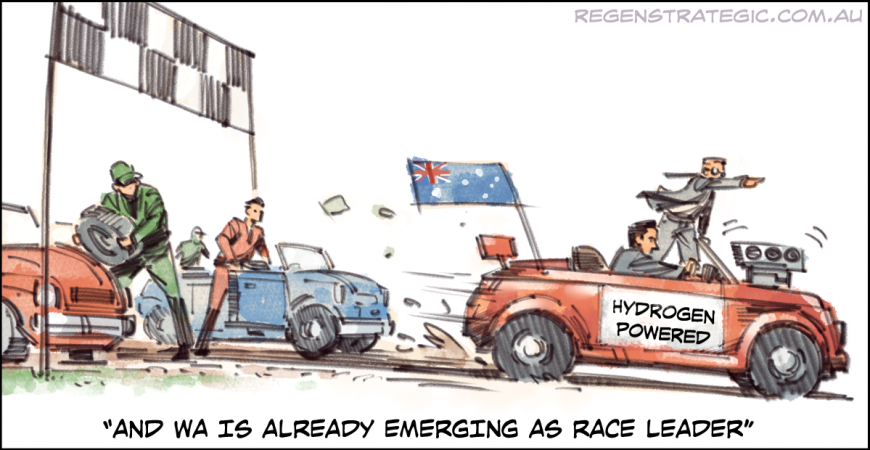The current excitement around hydrogen reminds me of the dot com boom. When mining juniors remade themselves, raising millions for little more than having an active email address.
Like the late 90s, there are plenty of pretenders in hydrogen. But, again, some major players are likely to emerge.
And we need them to.
According to the International Energy Association’s 2022 hydrogen industry review, one million tonnes (Mt) of low emission hydrogen was produced globally in 2021. However, this needs to grow to 95 Mt per annum by 2030 to be consistent with the IEA’s net zero by 2050 scenario. As things stood in 2022, we were only on track to reach 24 Mt per annum by 2030, at best.
However, like big tech, nobody expects the development of the hydrogen industry to be linear. The pipeline of new projects is increasing and technologically advancement will only accelerate the process. The war in Ukraine is also thought to have brought forward the energy transition by five to 10 years.
But, to meet the IEA’s net-zero trajectory, we need to be honest about the challenges facing the industry.
The IEA says governments need to work harder to seed demand for hydrogen, through procurement and by backing hydrogen-hungry projects. A lack of customers was seen as the main reason why only four per cent of low emissions hydrogen projects had reached final investment decision by 2022.
A massive ramp up in mining is required to manufacture the wind turbines, solar panels and electrolysers required.
Appropriate road capacity will also be required, with 12-14 oversize overmass (OSOM) trucks required to shift a single wind turbine to site. Then there’s the port infrastructure required for the kit that is imported, or if regional communities don’t want to be continually at standstill because of one OSOM movement after another.
And we’ll need an “all hands on deck” approach to meeting the demand for human capital all of this will create. Instead of the “every man for himself” approach we’ve seen to date.
But, if these issues can be resolved in Western Australia, there is a real chance that an Alphabet or an Apple will emerge from our many hydrogen proponents to reshape the world.
An abridged version of this article appeared in The West Australian newspaper.
 ReGen Strategic
ReGen Strategic